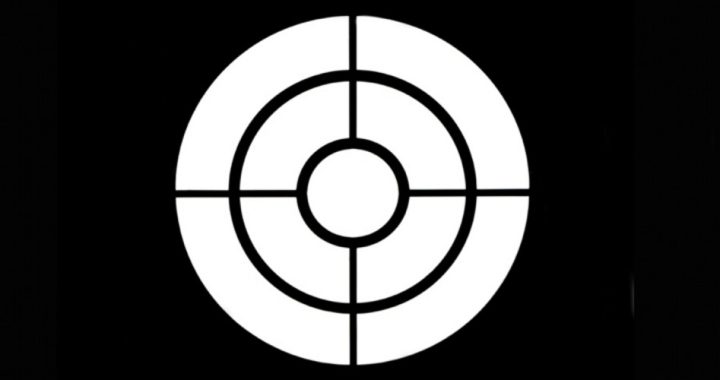
The resounding success of film American Sniper has inspired criticism from certain quarters, ranging from the perhaps reasonable to the wholly irrational. As to the latter, there has been much sniping from the left-America Left. Actor Seth Rogen tweeted that the movie reminded him of fake Nazi propaganda footage in the film Inglourious Basterds. Former Vermont governor and ex-DNC chairman Howard Dean essentially said that theatergoers seeing Sniper were angry Tea Partiers. And, not to be outdone, documentarian Michael Moore tweeted, “Tomorrow’s Sunday School (1) What Would Jesus Do? Oh, I know what he’d do — hide on top of a roof and shoot people in the back!” This was after Moore had already opined that “snipers aren’t heroes” and said, reported CNN, that his “‘uncle was killed by a sniper’ and that he was ‘taught that all snipers were cowards.’”
The Clint Eastwood-directed film, portraying the exploits of record-breaking Navy SEAL sniper Chris Kyle, is setting its own records: It’s now the highest grossing war movie ever (current box office total: $250 million) and just enjoyed the best Super Bowl weekend of any film with a $31.9 million haul. But while it’s said success is the best revenge, it must be emphasized that the least important aspect of this story is the man and the movie. More important is the Left’s attempt to discredit military snipers as a group. And what is the truth? Do snipers deserve credit or contempt?
The Washington Times’ Rowan Scarborough explored this matter, talking to those who understand snipers’ utility best: men who have been with them in battle. And reporting his findings on Sunday he wrote, “The importance of military sharpshooters such as ‘American Sniper’ Chris Kyle was never better demonstrated than during the 10-month struggle to take Fallujah in 2004. The urban swarm of al Qaeda in Iraq assassins and Saddam Hussein thugs presented Kyle with a sniper’s main mission: From a hidden nest, kill the enemy first and thus save American lives.”
Scarborough then quotes Congressman Ryan Zinke, a former Navy SEAL who commanded special operations troops in Iraq in 2004 and now is a freshman Republican from Montana, writing, “‘Snipers are absolutely essential if you value our troops’ lives,’ Mr. Zinke said. ‘A sniper provides protection of the ground troops for movement. Troops, oftentimes in an urban environment, are limited in their sight picture. A sniper is able to see around the corner and protect the troops’ movements.’” Cementing the point, Scarborough then presents another testimonial:
Warriors say critics of snipers do not understand their role.
“A sniper is one of the most effective tools on the battlefield,” said Brandon Webb, a SEAL teammate of Kyle’s and a former sniper instructor. “He’s protecting troops on the ground in some cases and eliminating high-value targets in a way that doesn’t come with collateral damage. We can tag [al Qaeda in the Arabian Peninsula operator Anwar] al-Awlaki in Yemen and send a Predator missile to kill him. But what kind of collateral damage does that come with? With a sniper, in most cases, it’s zero collateral damage. You’re taking out an enemy target very effectively and efficiently and inexpensively.
In other words, a sniper is probably the only type of combat soldier who rarely, if ever, finds himself killing non-combatants.
As for the film American Sniper, while Rolling Stone magazine — which Scarborough points out “once glamorized on its cover Dzhokhar Tsarnaev, accused of the Boston Marathon bombing that killed three and injured 264” — called it “almost too dumb to criticize,” it may have won the most important approval of all: that of the soldiers who have “been there.” Just consider a blog post by an apparent military veteran at OAFNation.com. Responding to Sniper critic and civil-rights lawyer Amanda Taub, who complained the film was too black and white, he wrote (as reported by the Blaze):
The film wasn’t about any of that because for US, the war wasn’t about any of that. Do you think any of us gave a f**[*] about Saddam Hussein, WMD, Bush, Cheney, or any of that s**[*] that was being ejaculated by the news? The film wasn’t about grey areas, because to us it didn’t matter. All that mattered to us was the guy to our left, and the guy to our right…and especially the guy that still had a can of Skoal. It wasn’t that we were willfully ignorant of the issues surrounding the Iraq, or that we were in denial, but when your finger is on a trigger, when you’re face is covered in your friends’ brain matter, you aren’t thinking about “good and evil” or “grey areas.” That is the entire point this civil rights attorney misses, the film was about a man on the ground and the struggle to come home with a head full of grief and regret, not the Iraq war itself.
The Blaze then reported, “The reason the movie doesn’t take a political stance [is] because the film isn’t political, he said.”
It should be noted that the everything-is-perspective Left mistakes relativism for sophistication and thus always takes issue with “black and white,” which, of course, is often just moral clarity (leftists still manage absolutism in their desire to crush dissent, however). But gray is what is seen only when eyes are incapable of penetrating a veneer of confusion and discerning Truth. Relativism is akin to believing the light-giving sun doesn’t exist because one can’t see it behind a gray sky.
And the criticism of snipers is also the result of blinding grayness, of allowing feelings on the Iraq War, current or former civilian leadership, or neo-conservative foreign policy to obscure the issue. The matter in question here doesn’t concern whether or not one agrees with our Mideast military campaigns. Snipers no more make policy or launch wars than do demolitions experts, artillery men, scouts, mechanics, infantrymen, or logistics experts. And the question of whether a given war is just has nothing to with whether a given role within warfare is just.
This isn’t to imply that a soldier doesn’t have an obligation to be a moral agency, that “I was just following orders” is always a valid defense. But analysts also have an obligation to be moral agencies. And there are those who, in a misguided zeal, would conflate a 19-year-old (average age in military) fighting in a controversial war and defending himself against armed combatants with incidents such as the My Lai Massacre.
The issue of cowardice is also an interesting one. We have a habit of hurling that accusation at anyone we dislike. The 9/11 hijackers and ISIS fighters have been called “cowards,” but that isn’t the first way many would think of characterizing men, even terrorists, who willingly sacrifice their lives for a cause. Evil? Yes. Brutal? No doubt. And, sure, some will ask “Does going to war or on a suicide mission indicate bravery if the person believes martyring himself will win Paradise”? Perhaps “faithful” (even if it’s misguided faith) is a better description than “brave,” but we just don’t know. Only God reads minds and hearts.
And what of the notion that — even if the sniper himself is stout-hearted — it’s cowardly to pick people off with a gun while perched somewhere high at a (supposedly) safe distance? Some might say dropping bombs from 10,000 feet, firing missiles from miles away, or shelling a shoreline from a ship is cowardly. Others might have once thought that using a firearm itself is cowardly. And “some” and “others” could be wrong. Why, a warrior millennia ago might have maintained that the only manly way to meet an adversary is wielding a sword face to face.
Then again, we might conclude that those represented by a man who best wields a knife and fork and does all his fighting with a camera, a Twitter account, and deception are scarcely ones to judge.



